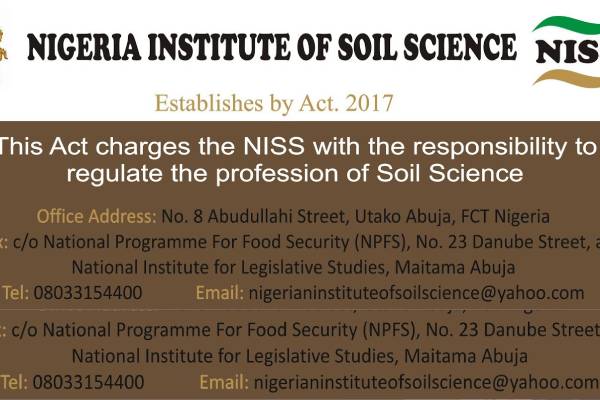Following the devastating effects of the recent Floods on farmlands across Nigeria, the north central zone of the Nigeria institute of soil science has organised a 3 day workshop for farmers and agricultural extension agents.
The workshop will enlighten participants on climate smart agriculture to mitigate against the impact of flood on the soil in the affected states.
The September and October floods, caused by high rainfalls and the opening of the Lagdo dam in Cameroon, had a devastating effect on agriculture.
Plants were washed away and soil layers were destroyed, escalating threats of food shortage in the coming year.
But experts say with aggressive dry season farming, Nigeria can move from food security to food sovereignty.
This is why the Nigeria institute of soil science is training farmers from the north central states of Nigeria on best practices to take in order to mitigate the effects of flooding on the soil.
The training workshop was declared open by the vice chancellor of the federal university of technology Minna, professor Abdullahi Bala.
He noted that the training could not have come at a better time, as it will give farmers the requisite knowledge on the best agricultural practices to mitigate the damage done by Flooding on the soil.
Farmers at the training say they have recorded various degrees of losses to the flood but are upbeat that the training will help them recoup what has been lost.
Niger State was one of the most badly hit States during the recent flooding across more than 20 states of Nigeria.
The issue of Soil training that the North Central Zone of the National Institute for Soil Science is now embarking upon was one of the measures pin pointed by some experts as important to mitigate against income loss and food scarcity in the aftermath of the floods.
This training according to many will help in ensuring Farmers and Others are trained to be able to plant the right crops and use the right techniques and ensure food and Agric production returns to areas affected by the Floods especially those where food production is the number one occupation of the people.





